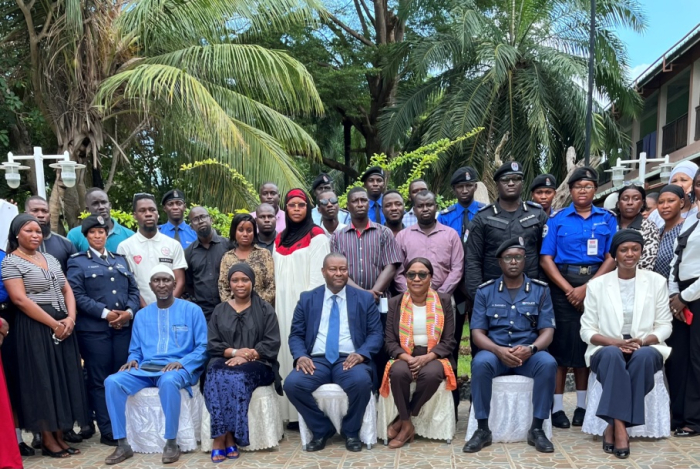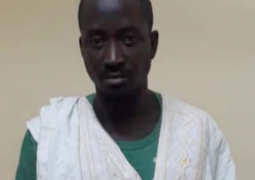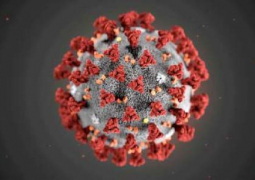
The appeal, made at a two-day training for investigators and prosecutors on Wednesday 13 August 2025 at Senegambia Beach Hotel, comes in the wake of a one-month-old baby’s death allegedly caused by FGM, a tragedy that has reignited demands for stronger enforcement and justice for victims.
Recalling the historical perception of gatherings of police officers, Mr Joof quipped that “many moons ago, when officers, some in uniform and others in plain clothes, gathered together, it often meant a high-profile security operation or that I should start worrying about something I had said. Today, however, I am at ease because we are gathered here as partners. And that is what we are partners. We must hammer that point home again and again. The NHRC is your partner, and we are in this together.”
He underscored that the joint mission is clear: “protecting the rights, dignity, and safety of women and girls in The Gambia.” The training, he explained, would unpack both international and national legal instruments including the Women’s (Amendment) Act 2015 which prohibits FGM and other harmful practices, safeguarding fundamental human rights such as the right to life, the right to health, freedom from discrimination, and protection from inhuman or degrading treatment.
Mr. Joof reminded participants that the law remains intact despite the heated debates of 2024, when a private member’s bill sought to repeal the FGM ban. “The operative phrase is that the law remains firmly in place,” he said. “Our task now is to enforce it fully, fairly, and without fear or favour.”
He lamented that The Gambia had recently made international headlines for the wrong reasons, following the tragic death of a one-month-old baby due to FGM-related complications. “It is a tragedy that has shocked our nation and captured the attention of the world. BBC, CNN, and other international outlets reported it; I received messages from Geneva to New York,” he said. “FGM is not simply a cultural practice — it is a criminal offence in our laws. This is a national wake-up call.”
Highlighting the relevance of African-led legal frameworks, Mr. Joof referenced the African Charter on the Rights and Welfare of the Child and the Maputo Protocol, emphasising that these instruments are “ours, not borrowed from the West.” He also cited the UN Convention on the Rights of the Child, the Convention on the Elimination of All Forms of Discrimination Against Women (CEDAW), and the Convention Against Torture, all of which The Gambia has ratified.
Following the infant’s death, the NHRC called for a thorough investigation into all cases of sexual and gender-based violence (SGBV), including FGM. Mr. Joof acknowledged that prosecutions have often been hindered by societal pressures, the sensitive nature of cases, and political interference. However, he commended the police for their swift response in this instance, noting that suspects had been apprehended and charged. “We hope justice will take its course without interference,” he said.
Commissioner Abdoulie Sanneh, in charge of Legal and Prosecution Affairs at the Gambia Police Force, confirmed that the case has been transferred to the High Court due to the severity of the charges, which carry a possible life sentence. “The investigation is complete, except for the post-mortem results,” he said. “Three accused persons have been arrested and charged. Under the Women’s (Amendment) Act 2015, anyone found guilty of this offence faces life imprisonment.”
Commissioner Sanneh stressed the importance of the training, noting that it brought together both investigators and prosecutors. “The police enforce all laws, regulations, rules, and policies of this country, as clearly stated in Section 4 of our Police Act. But we cannot enforce the law without first understanding it,” he said. “The knowledge gained here must be shared with colleagues. This is a timely and important programme, and I extend the appreciation of the Inspector General of Police to the NHRC for organizing it.”



